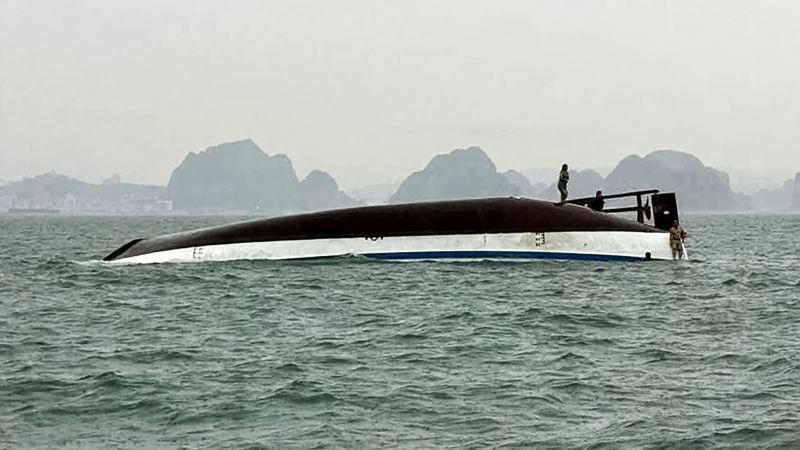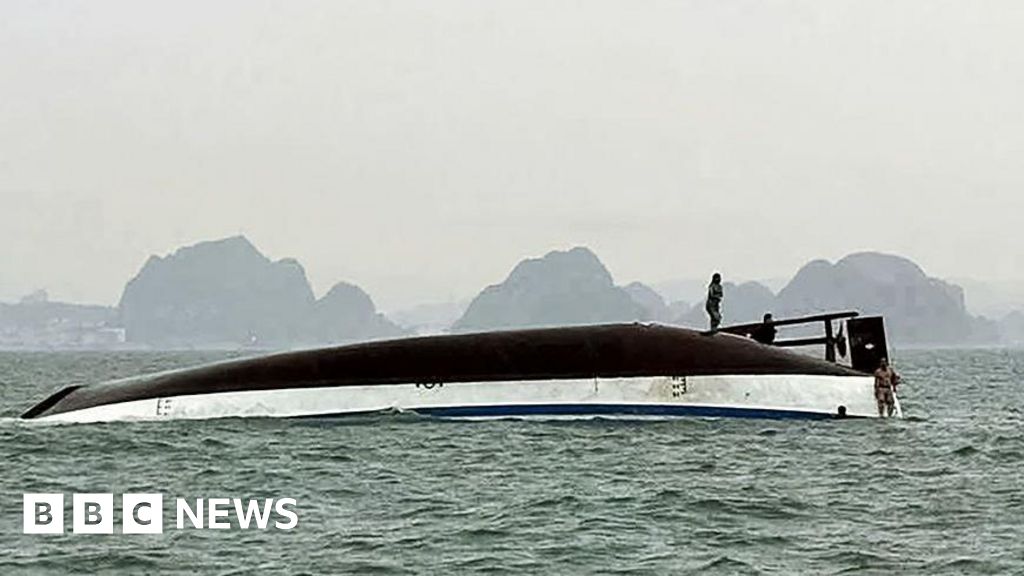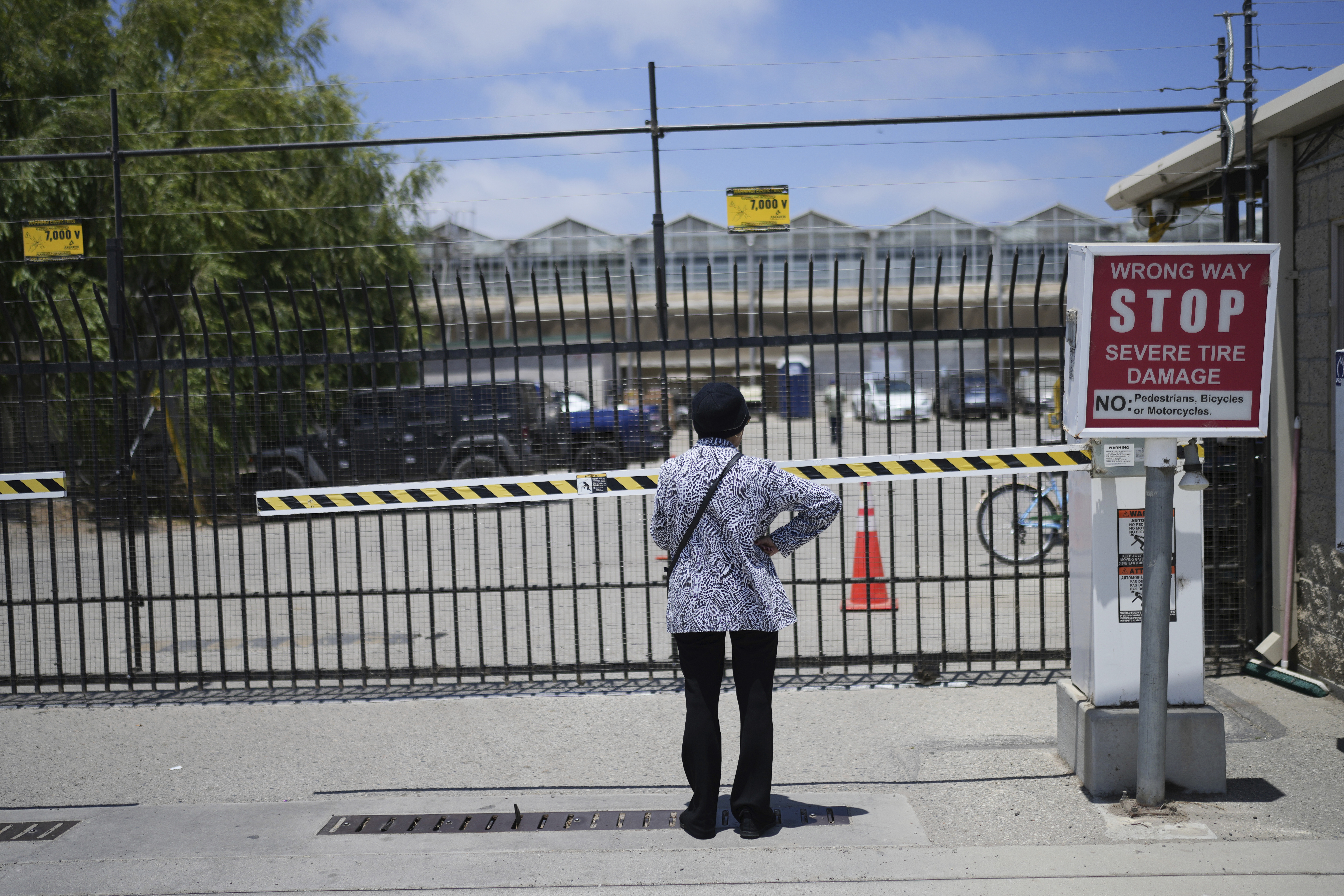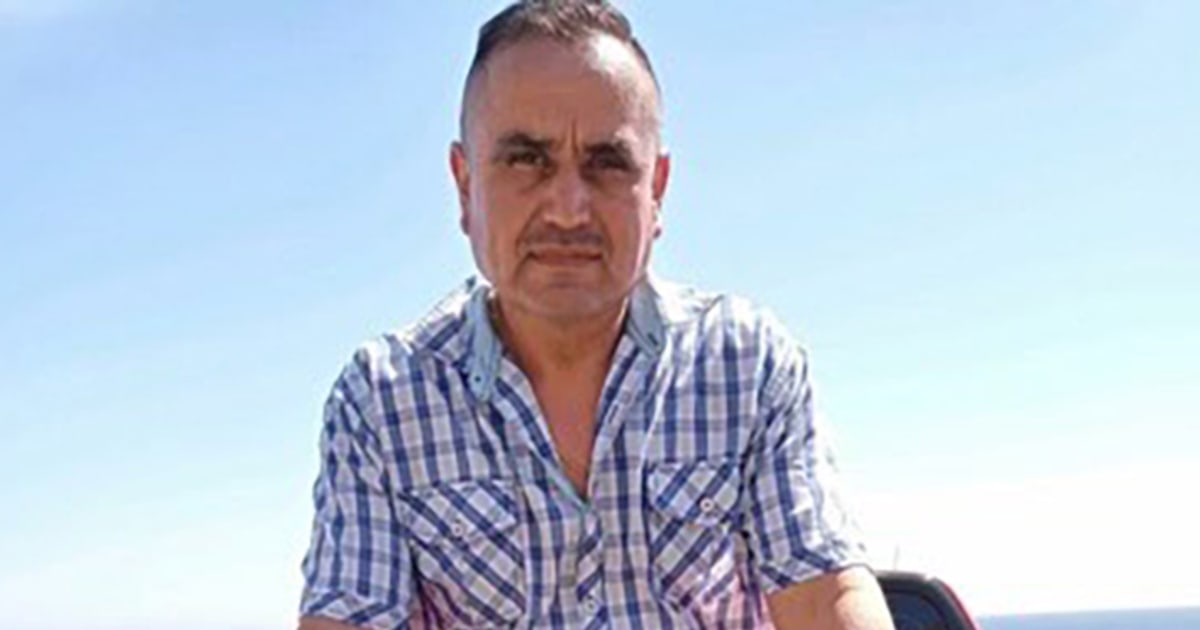Tragic Boat Capsize in Vietnam Leaves Dozens Dead

Introduction
A tourist boat capsized in Vietnam, resulting in the tragic death of dozens of people. The incident has left many shocked and grieving, with one survivor pleading for everyone to be rescued before it was too late.
Survivor's Plea
As the boat started to sink, the survivors were frantically trying to escape, but there was not enough space on the rescue boats. One survivor recalls pleading with the rescuers to not leave anyone behind, as there was little air left and a small chance of survival for those still trapped on the sinking boat. The harrowing image of people desperately reaching out for help is a heart-wrenching reminder of the devastating impact of the incident.
Safety Measures
This tragedy has once again brought attention to the safety measures and regulations in place for tourist boats. Many are calling for stricter safety protocols and thorough inspections to prevent similar incidents from happening in the future. The heartache and loss experienced by the victims and their loved ones highlight the need for proper safety measures and precautions to be taken to avoid such disasters.
About the People Mentioned
Survivor
# Survivor: Television Franchise Overview **Survivor** is a reality television game show franchise that originated from a format developed by British television producer **Charlie Parsons** in 1992[1]. The Swedish version, *Expedition Robinson*, debuted in September 1997 as the first *Survivor* series to air on television[1]. The American adaptation launched on CBS on May 31, 2000, and became a landmark moment in television history, credited with launching the reality-television phenomenon of the 2000s[3][4]. The American version of *Survivor* has aired 49 seasons since its 2000 debut[1]. The show's format involves 16 to 20 contestants sequestered in remote, exotic locations who compete for a cash prize[3]. Contestants are divided into tribes and must survive with minimal tools while competing in challenges. Players are voted out every three days over 39 days until two finalists remain[5]. Once nine players are eliminated, they form a jury of seven members who vote to determine the sole survivor and award the $1 million grand prize[3]. The first American season, won by Richard Hatch, achieved massive ratings success and is credited with pioneering reality television as a genre[3]. The show's longevity—now spanning 25 years—reflects its continuous innovation in format and gameplay mechanics[4]. Starting with season three, *Survivor* adopted a schedule of airing two seasons annually, a pace maintained through 2023[2]. The production team has grown substantially from approximately 70 people at the show's inception to over 600 today[2]. The franchise has expanded globally, with the format adapted and produced in more than 25 countries since the late 1990s[3]. The 50th season, commemorating the show's 25th anniversary, is scheduled to air in early 2026[1]. The series remains considered one of the greatest reality television shows ever made, influencing countless competition-based programs through its innovative gameplay elements and storytelling approach[4].
Rescuers
Animal rescue organizations, often simply called "rescues," are nonprofit groups dedicated to saving abandoned, abused, stray, or surrendered pets—primarily dogs, cats, and sometimes wildlife—and placing them in permanent adoptive homes through foster-based care.[1][2][5] Run predominantly by volunteers who house animals in their own homes, these groups provide medical treatment, behavioral training, and socialization before adoption, distinguishing them from government-funded shelters that typically maintain on-site kennels.[2][5][7] Notable roles include pulling animals from overcrowded shelters, addressing health issues like injuries or parasites, and evaluating compatibility with families, children, or other pets to ensure successful matches.[1][2][7] Many specialize by breed (e.g., Labrador Retriever Rescue) or focus on wildlife rehabilitation, releasing recovered animals like big cats back into the wild when possible.[1][2] Unlike shelters, rescues emphasize personalized care without overpopulation pressures, often partnering with service dog programs or conservation efforts.[1][2] Key achievements encompass thousands of U.S.-based groups rescuing hundreds to thousands of animals annually, funded by donations and adoption fees that cover veterinary costs.[1][5][7] They promote animal welfare policies, reduce euthanasia rates, and foster community education on responsible pet ownership.[6][8] Legal structures vary: many are 501(c)(3) nonprofits requiring articles of incorporation, bylaws, and IRS compliance, with some operating under shelter contracts.[3][4] Their current relevance persists amid ongoing issues like pet surrenders due to evictions or medical expenses, with rescues filling gaps in shelter systems by prioritizing rehabilitation over mere housing.[6] Recent trends highlight strict adopter screening and medical prioritization, ensuring healthier outcomes despite volunteer burnout risks.[3][7] (298 words)
About the Organizations Mentioned
World Health Organization
The World Health Organization (WHO) is a specialized agency of the United Nations, established in 1948, with a mandate to promote global health, coordinate international responses to public health threats, and set standards for health policies and interventions[2]. Headquartered in Geneva, Switzerland, WHO operates in over 150 countries, working with governments, NGOs, and other partners to advance health equity, strengthen health systems, and respond to health emergencies. ## What WHO Does WHO’s core activities include monitoring global health trends, setting international health standards, providing technical assistance to countries, and serving as a forum for scientific and policy discussions on health issues[2]. The organization publishes influential reports such as the annual **World Health Statistics**, which tracks progress toward Sustainable Development Goals (SDGs) and provides a global “health report card”[1][8]. WHO also maintains the Model List of Essential Medicines, guiding countries on which drugs are most critical for public health[7]. In addition, WHO leads global campaigns on issues ranging from infectious disease eradication to noncommunicable diseases (NCDs), maternal and child health, and health emergencies[2][6]. ## History and Key Achievements WHO’s history is marked by landmark achievements, including the eradication of smallpox, near-eradication of polio, and the development of an Ebola vaccine[2]. The organization played a pivotal role in responding to the COVID-19 pandemic, coordinating global research, vaccine distribution, and public health guidance. In May 2025, WHO member states adopted the world’s first **Pandemic Agreement**, a historic step to improve international coordination and equity in future health crises[4]. WHO also spearheads initiatives like the Triple Billion Targets (healthier lives, universal health coverage, and protection from health emergencies) and technical policy packages targeting tobacco, alcohol, salt, and trans fat reduction[1][2]. ## Current Status and Notable Aspects WHO is currently implementing its **Fou












